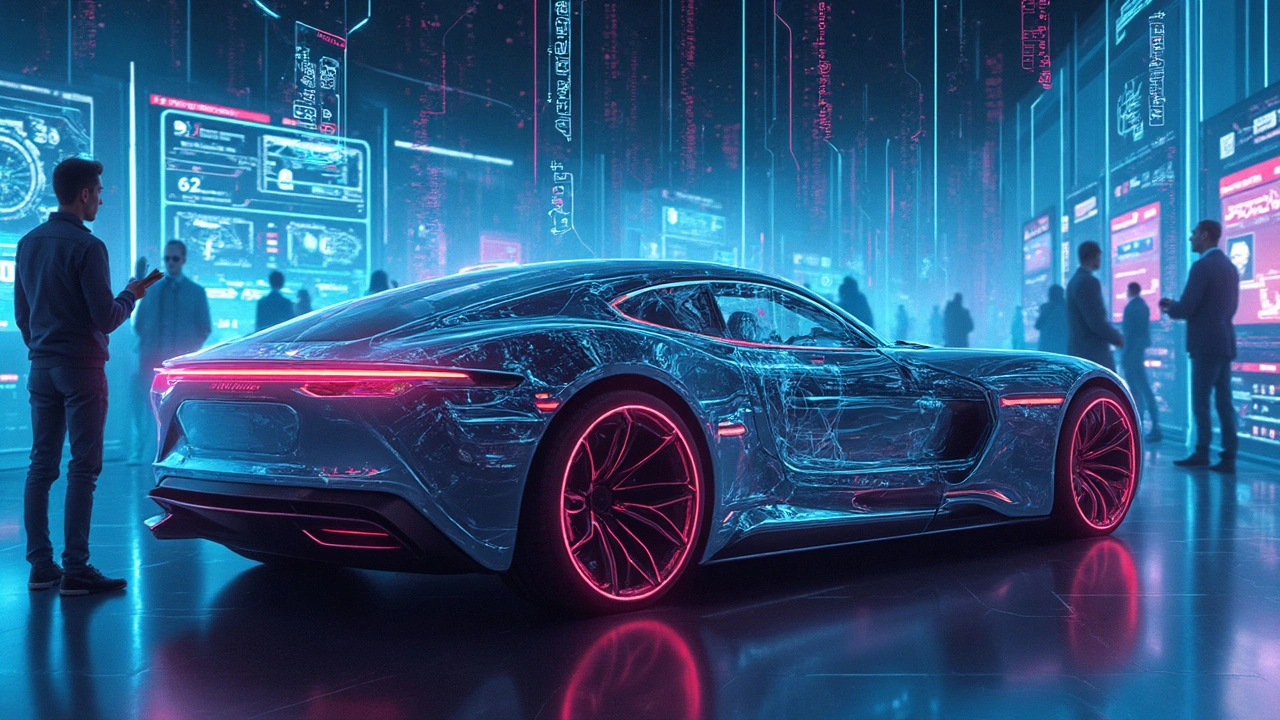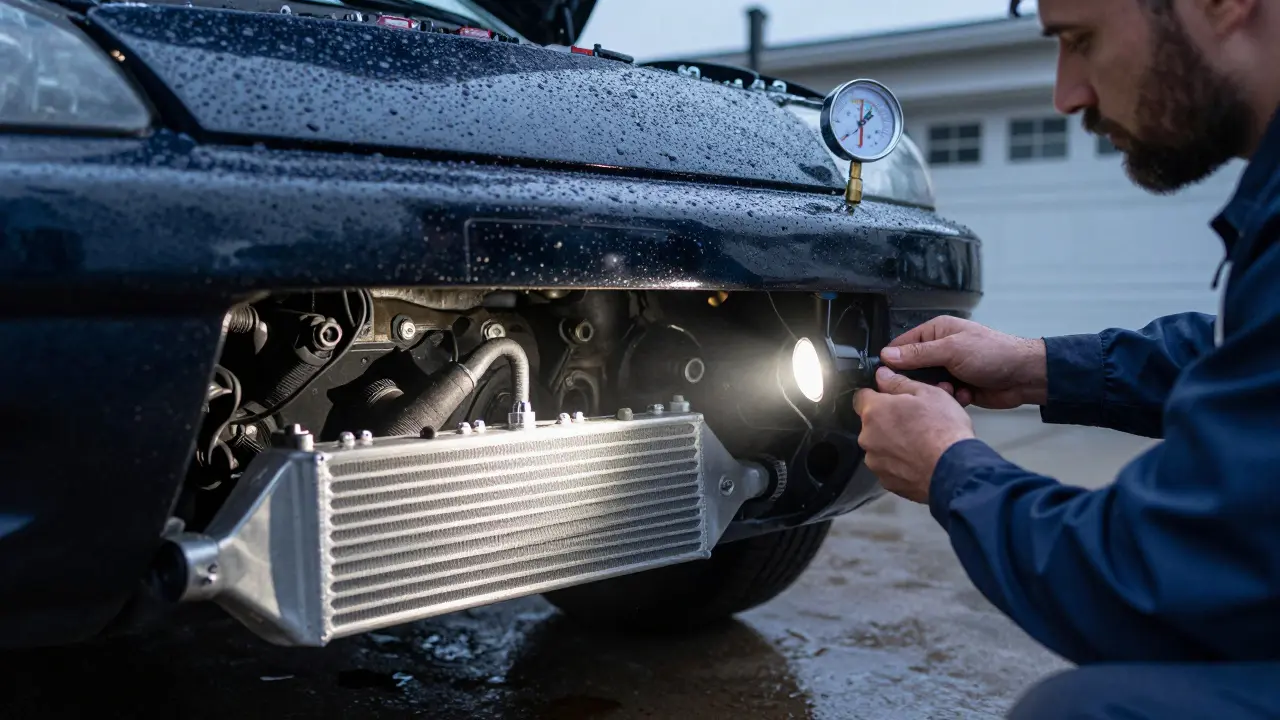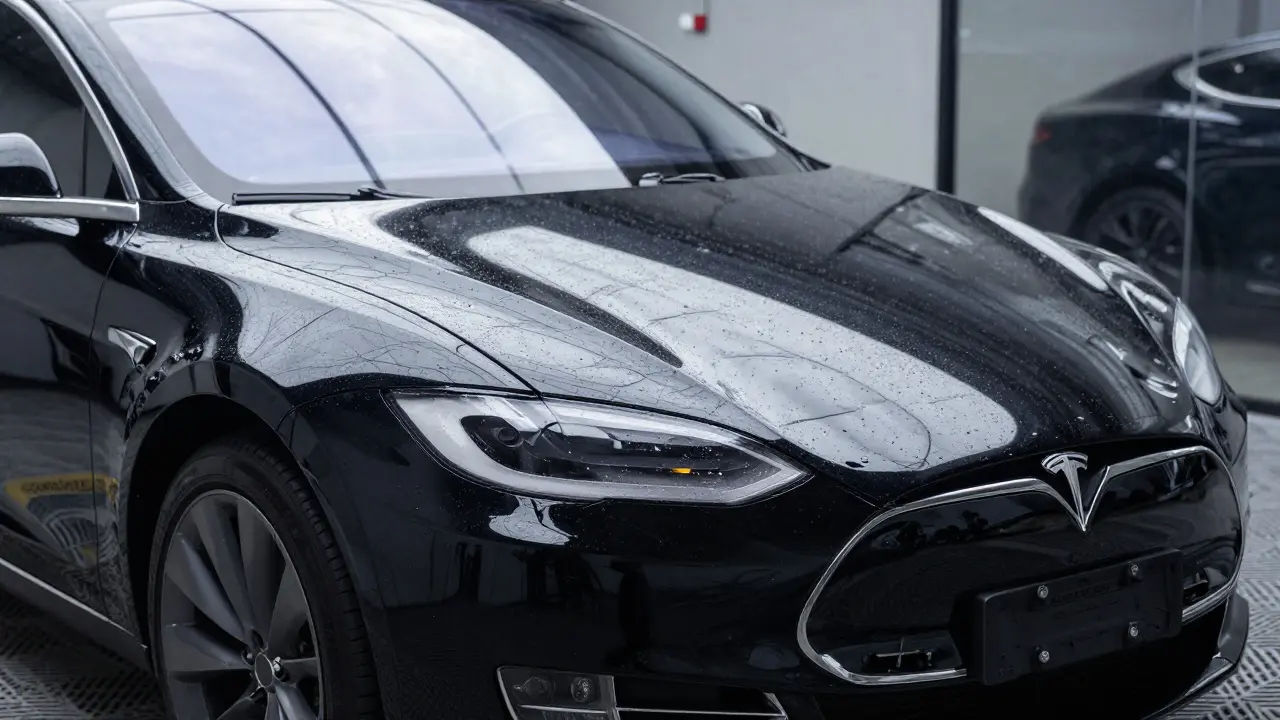Ever wondered how life would roll along without cars? Seriously, automobiles are more than just a set of wheels to get us from point A to point B. They've become the backdrop of our daily routines. Imagine trying to run errands, commute to work, or head out on a road trip without one. That's some serious hassle!
Let's face it, cars have been game-changers since they revved onto the scene. Take a look back at history: there was the Ford Model T in the early 1900s, making rides accessible to average folks. Fast forward to today, and we've got smart cars that practically drive themselves.
But there's more than just convenience. The car industry is a massive player in global economies. It's not just about producing vehicles; it's about jobs, trade, and innovation pushing forward at turbo speed. If you're curious about how automobiles shape our world or simply want to be the savvy one at the next dinner party, stick around. We've got plenty of intriguing tidbits and useful tips coming your way.
- The Evolution of Automobiles
- Impact on Daily Life
- Economic Significance
- Technological Advancements in Cars
- Environmental Considerations
- Future Trends in the Automobile Industry
The Evolution of Automobiles
When you think about the automobiles of today, it's hard to believe they started as souped-up horse carriages. The journey from steam-powered contraptions to the sleek electric rides we’re used to has been nothing short of extraordinary. Let's hop in the time machine and take a look at how we got here.
The Early Days: Steam and Discovery
Back in the late 1700s, steam engines were the big deal. These clunky machines were more like runaway trains than cars, but they sparked the human imagination. It wasn't until the 1880s that Karl Benz made a major breakthrough with the first true gasoline-powered car. That's right, the Mercedes-Benz you see on the road traces its legacy straight to him!
The Age of Mass Production
Enter the 1900s. This is where things really started shifting gears. Henry Ford rolled out the Model T in 1908, forever changing the game. Why? He mastered assembly line production, making cars affordable for the average Jane and Joe. By the 1920s, automobiles weren’t just for the rich anymore—they were everywhere!
Transformations Post-War
After World War II, everything got fancier. Think tailfins, chrome details, and colors that popped. People had more money to spend and a taste for new styles. Companies like Cadillac and Chevrolet became household names, offering cars that symbolized freedom and the American Dream.
Innovation Takes the Wheel
- 1970s: Oil crises forced designers to think fuel efficiency, not just muscle.
- 1980s-1990s: The rise of Japanese cars brought reliability and economy into focus.
- 2000s: Hybrid technology, like the Toyota Prius, emerged as pioneers in eco-friendly driving.
Moving into the 2010s and beyond, the rise of electric vehicles has set a new course. Companies like Tesla have made electric cars trendy, with zero emissions becoming the end goal.
Where We Are Heading
With technological advancements in full throttle, self-driving cars are no longer science fiction. Automakers are also investing in AI and connectivity, turning cars into smart devices on wheels. This industry keeps evolving, so buckle up; it’s going to be a thrilling ride!
Impact on Daily Life
From the daily commute to spontaneous road trips, automobiles have woven themselves into the fabric of our modern lives. Seriously, think about all the moments when having a car just makes life easier. A quick grocery run, picking up kids from school, or even a late-night snack run wouldn't be the same without your trusty vehicle.
Getting Around
One of the biggest perks of cars is the freedom they provide. Public transport is great and all, but nothing beats the convenience of leaving when you want and taking the scenic route if you feel like it. It's not just about personal freedom, though. People living in sprawling suburbs or rural areas especially rely on cars to access jobs, healthcare, and education. Without automobiles, these connections would be a real headache.
Time-Saving Machines
On a busy week, the time saved not waiting for buses or trains can add up really quickly. For commuters, this means more time at home, more flexibility, and fewer scheduling stress. In many cities, carpooling has also become a big deal, helping slash commute times and letting folks catch up on work or sleep en route.
Economic Convenience
Remember errands? Running a few errands in one trip saves both time and gas money—a big win in everyone's book. That's why so many people swear by keeping a 'car day' where they handle all their running around at once.
Unexpected Emergencies
And let’s not forget emergencies. Whether it's a sudden trip to the hospital or a friend needing a late-night lift, having a car at your disposal offers peace of mind. You can respond faster, making a real difference when minutes count.
Cars are undeniably a big piece of the puzzle in fitting together our world today. As much as riding a bike or hopping on a bus makes sense in some situations, there's no getting around how essential cars are in our daily dance with life.
| Reasons People Use Cars Daily | Percentage |
|---|---|
| Commuting to Work | 75% |
| Running Errands | 60% |
| Recreational Travel | 50% |
| Emergency Situations | 30% |
Economic Significance
When we talk about automobiles, we're not just talking about a car that gets you places. We're talking about a whole industry that revs up the global economy. The car industry is massive, employing millions of people around the world. From the folks on the assembly lines to engineers dreaming up the next big thing, there’s a whole ecosystem built around it.
Take a peek at the numbers. The global automotive market value hovered around 2.7 trillion dollars in 2024. That's like imagining a stack of dollar bills high enough to reach the moon—and then some. With millions of vehicles sold each year, there’s no question cars keep cash circulating through economies in just about every nation.
Transportation networks crucially depend on these vehicles too. Think about all the rideshare drivers and delivery services operating daily. The gig economy thrives partially because of the easy accessibility of cars.
Job Creation and Economic Stability
In terms of jobs, the industry is one of the largest employers globally. The production, sales, maintenance, and even the transportation of parts create employment for a huge number of people. This sprawling network ensures that economies remain stable and can even stimulate growth during tough times.
Allied industries also benefit big-time. Think about all the places where tires, car insurance, fuel, and roadside assistance services are necessary.
Boosting Technology and Trade
Innovation in automobiles often trickles into other sectors. Advances in safety tech, for example, sometimes benefit other industries like aviation or marine navigation. And let's not forget global trade: countries known for their car production often have a major leg up in international trade relationships. Cars are a major export for some countries, and when these vehicles start cruising off to different parts of the world, it makes national economies rev.”
What does this mean for you? Well, the next time you're cruising down the highway, give a thought to the sweeping impact of your car. You're not just burning fuel but playing a small part in a giant economic engine that keeps so much more than vehicles in motion.

Technological Advancements in Cars
Alright, let's get into the cool tech stuff that's been happening with automobiles. It's like we're living in a sci-fi movie these days. One of the biggest areas of advancement is the development of autonomous cars. These bad boys can handle a trip to the store without you even touching the wheel. Companies like Tesla and Google have been paving the way, using sensors and cameras to help cars navigate through complex environments.
Then, there’s the whole electric vehicle scene. Electric cars are gaining traction because of their efficiency and eco-friendliness. Brands like Tesla, Nissan, and Chevrolet are leading the charge — literally! Plus, with charging stations popping up everywhere, range anxiety is becoming a thing of the past.
Connected Car Technology
Let’s not forget connected cars, which are basically mobile phones on wheels. They let us stream music, navigate roads, and communicate using advanced systems like Apple CarPlay or Android Auto. Safety features have also got a boost with technologies like lane-keeping assist and adaptive cruise control helping us avoid accidents.
Hybrid Technology
Another tech marvel is hybrid vehicles, blending traditional engines with electric systems. Toyota’s Prius put this option on the map, and now it's hard to find a manufacturer that doesn’t have a hybrid or two in their lineup.
| Year | Electric Vehicle Sales |
|---|---|
| 2020 | 500,000 |
| 2021 | 850,000 |
| 2022 | 1,200,000 |
As you can see from the table, the shift to electric is accelerating. Sales have more than doubled in recent years!
All this progress isn’t just about making our rides more enjoyable or boosting bragging rights. These advancements are making transportation safer, more efficient, and kinder to the planet. So next time you're behind the wheel, take a moment to appreciate the tech that’s shaping the future of the car industry.
Environmental Considerations
These days, we all know that the environment is a hot topic, and automobiles have quite a role to play in this conversation. Cars have been a major source of air pollution and carbon emissions, which play into the big picture of climate change. It's no wonder there's been a lot of noise about making them greener.
Emissions and Their Impact
Car emissions are more than just smoke coming out of the exhaust. We're talking about carbon dioxide (CO2), nitrogen oxides, and hydrocarbons. CO2 is the big one when it comes to greenhouse gases. Did you know that transportation accounts for nearly a quarter of global CO2 emissions?
The Push for Electric Vehicles (EVs)
Enter electric vehicles (EVs). They're the frontrunners in reducing pollution from automobiles. Without the need for gas, EVs cut direct emissions to virtually zero. Over the past decade, the number of EVs on the road has surged. In 2024 alone, electric car sales grew by 30% worldwide. Crazy, right?
But let's keep it real. EVs have their own set of challenges. The production of batteries can be resource-heavy, and there's the question of how 'clean' the electricity used to charge them is. Still, as renewable energy sources like wind and solar expand, the eco-balance is shifting.
Hybrid Vehicles: A Middle Ground
Not everyone's ready to go full electric, and that's cool. Hybrid vehicles offer a kind of stepping stone. They still use regular fuel but combine it with electric power to lower emissions and boost fuel efficiency. It’s like having a foot in both worlds.
Improving Fuel Efficiency
Fuel efficiency in traditional cars has gotten a lot better too, thanks to technological tweaks. Engines are more efficient, vehicles are lighter, and aerodynamic designs help slice through the air with less drag.
Staying Informed and Making Choices
So, what's a person to do? Staying informed is key. Whether it’s thinking about your next car purchase or how you maintain your current ride, choosing vehicles with better fuel economy or considering an EV can make a difference. It’s good for your wallet and the planet.
Future Trends in the Automobile Industry
The automobile industry is in high gear, racing towards a future that's all about innovation and sustainability. So, what's driving these changes? Let's break it down.
The Rise of Electric Vehicles
Electric vehicles (EVs) are taking the spotlight, and it looks like they’re here to stay. With concerns over fossil fuels and climate change, more folks are snapping up EVs than ever before. Companies like Tesla, Nissan, and even Ford are rolling out models that aren't just eco-friendly, but also packed with high-tech features. Expect even more accessible and efficient options as the industry invests heavily in battery technology and charging infrastructure.
Connected and Autonomous Cars
Imagine a world where cars do the driving for you. Sounds like sci-fi, right? Well, autonomous vehicles are becoming more of a reality. Self-driving technology is advancing, with companies like Waymo and Uber testing it out on the streets. Alongside this is the concept of connected cars, which are all about staying online and syncing with everything—from your smartphone to your smart home.
Environmental Impacts and Regulations
Regulations are tightening up globally, pushing car manufacturers towards greener options. This means new cars will not only aim to reduce emissions but also focus on recyclability and efficient production processes. It's likely that automakers will continue to refine hybrid technologies while fully transitioning to electric fleets.
Smart Materials and Manufacturing
To keep up with these trends, automakers are looking into advanced materials that are lightweight yet strong. Think carbon fiber or aluminum instead of traditional steel. Not only do these materials make cars more fuel-efficient, but they also offer better performance.
Conclusion: An Industry in Motion
So, what do all these future trends mean for you? Well, if you're a car enthusiast, it's an exciting time. Car industry players are not just thinking about how to improve vehicles but are also imagining ways to change our daily lives. It's safe to say automobiles will stay the backbone of modern society—just in a new, greener, and more sophisticated way.





